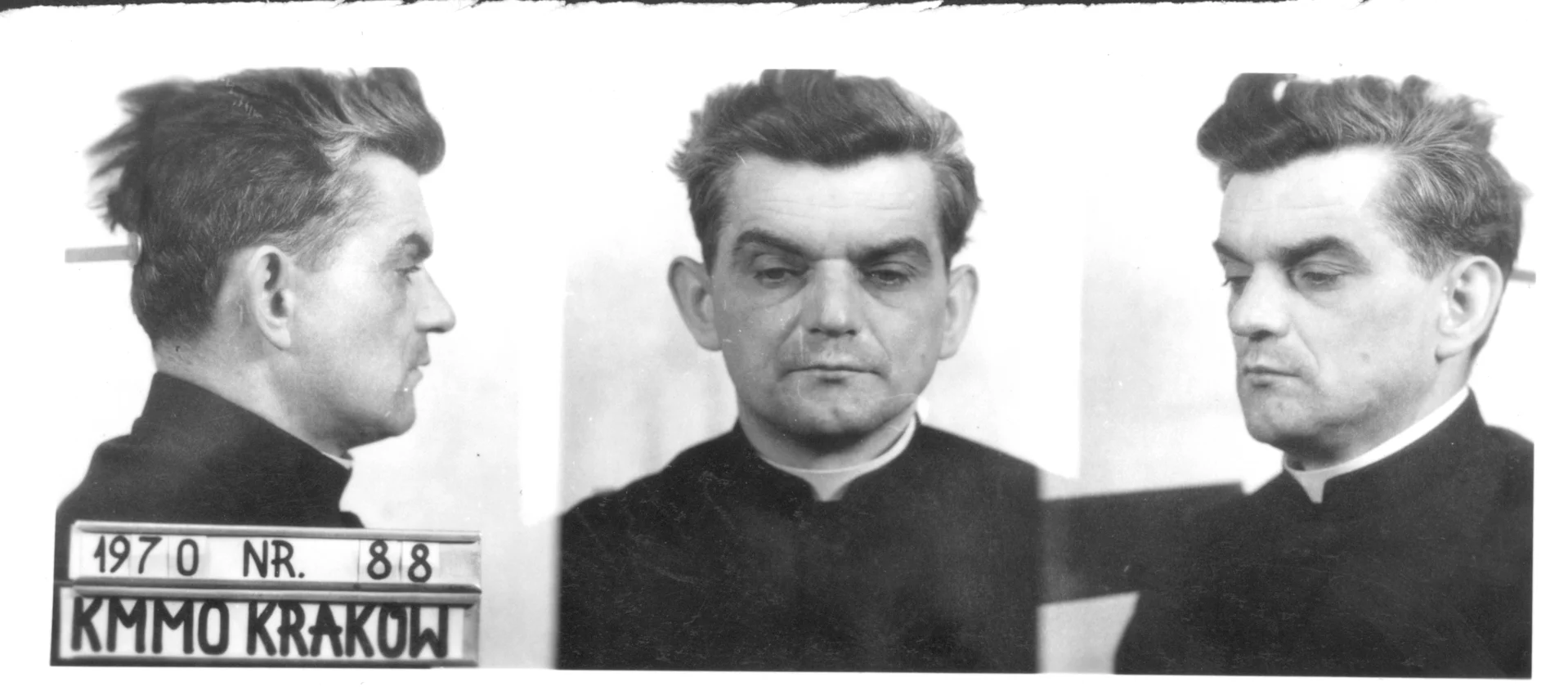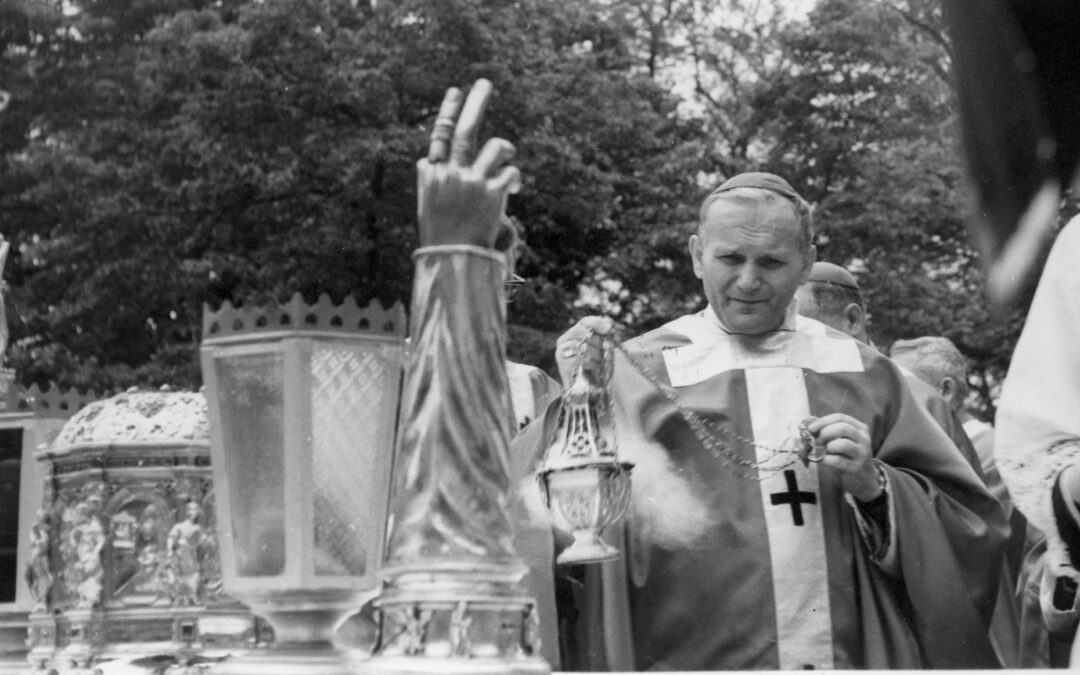The future Pope John Paul II allowed a priest to return to priestly duties after he had served a prison sentence for self-confessed multiple cases of sexually abusing 10- and 11-year-old girls, according to archival documents and interviews published in a new book.
The revelations come amid debate in Poland over the legacy of John Paul II – a national hero not only for his spiritual leadership but also for the role he played in inspiring opposition to the communist regime – with regard to historical abuse cases in the Catholic church.
Poland's bishops have defended Pope John Paul II’s record on child sex abuse.
It says “media attacks” claiming he was negligent are an “attempt to undermine his authority” because his ideas “do not correspond to contemporary ideologies promoting hedonism” https://t.co/fe1SYmqHVt
— Notes from Poland 🇵🇱 (@notesfrompoland) November 21, 2022
The claims emerged from a book, Maxima Culpa, by Ekke Overbeek, a Dutch journalist who is the Warsaw correspondent for the Trouw daily. It will be released next month, but an extract has been published by news magazine Duży Format.
The article focuses on the case of Józef Loranc, a priest who abused a number of girls in the village of Mutne in 1969 and 1970 while teaching Catholic catechism classes. Its findings corroborate previous reporting – also based on archival documents – by the Rzeczpospolita daily in December.
Loranc on multiple occasions forced girls to touch his penis with their hands and mouths, doing so on the front pew of a church during classes. He hid the abuse from the other children present by covering the girls with his jacket.
The Catholic church in Poland has offered support to victims of a now-deceased priest who was convicted of child sex abuse in the 1970s but, according to a new report, continued to abuse children while working in the church after his release from prison https://t.co/0GqbcSVHat
— Notes from Poland 🇵🇱 (@notesfrompoland) November 30, 2022
According to contemporary police, prosecutorial and court reports, as well as recent interviews with one of his former victims and their classmates from the time, it is apparent that, after some parents learned of the priest’s abuse, they reported it to his local superior in a neighbouring village.
In March 1970, that superior then took the case to Cardinal Karol Wojtyła, the archbishop of Kraków – who would a few years later become Pope John Paul II. After Loranc, who was at the meeting, admitted the truth of the accusations against him, Wojtyła ordered him to be suspended from his duties.
Meanwhile, police and prosecutors were also investigating. In an interview, Loranc confessed to them that he had committed multiple acts of abuse against children during catechism classes. Investigators found that he had molested at least nine girls.
In September 1970, the priest was found guilty and sentenced to two years in prison by the provincial court in Kraków. He was released after serving around a year of that sentence.

A mugshot of Józef Loranc from 1970 (source: IPN via Rzeczpospolita)
Following Loranc’s release, Wojtyła wrote to him in September 1970, according to a signed letter found in the archives, saying that, “taking into account all your behaviour, showing a desire to correct wrongs, and sincere improvement, I consider it advisable that you gradually return to priestly work”.
The cardinal, therefore, announced that he was lifting Loranc’s suspension from celebrating Holy Mass and performing priestly functions. However, he barred the priest from conducting catechism classes with children and youths.
The priest’s former victim who spoke with Overbeek confirmed that at the time she had heard from a cousin that Loranc was once again working as a priest. Another archival document shows that a parish priest in the town of Zakopane sought permission to employ Loranc for all priestly duties apart from catechesis.
The Vatican has punished two Polish bishops over their "negligence" in responding to cases of sexual abuse against minors by members the Catholic clergy https://t.co/XVOqCqSGwr
— Notes from Poland 🇵🇱 (@notesfrompoland) March 29, 2021
The archives also reveal that, in 1974, Wojtyła received an anonymous letter from a parishioner in Zakopane accusing Loranc of “indecent behaviour” towards girls.
However, Overbeek warns that the document cannot be trusted because it was in fact written by the communist security services (SB). He notes that sometimes the SB would spread such accusations based on true information, but that there is no way of knowing in this case if the claims were accurate.
Eleven months later, in 1975, Wojtyła transferred Loranc away from Zakopane and from parish duties entirely, making him chaplain of a hospital in Chrzanów.
A Polish cardinal and former papal secretary accused of ignoring cases of sex abuse has been cleared by a Vatican investigation, which found he acted “properly”.
Stanisław Dziwisz has welcomed the decision and says that he “forgives the harm done to me" https://t.co/OpJsTYd0Av
— Notes from Poland 🇵🇱 (@notesfrompoland) April 22, 2022
The Catholic church in Poland has not yet responded to the publication of extracts from Overbeek’s book by Duży Format.
But in December it did comment on reporting by Rzeczpospolita about Loranc and another priest, Eugeniusz Surgent, who remained in the priesthood after a conviction for sex abuse, which took place when he was under the authority of the Kraków curia led by Wojtyła. Surgent reportedly then went on to abuse more victims.
The head of the Polish episcopate’s Office for the Protection of Children and Youth admitted in an interview with Tygodnik Powszechny that there was at the time “a lack of awareness of the harm caused by sexual abuse”, but he noted that this was the case both “in the church and society”.
However, he also said that, in the cases of both Loranc and Surgent, the “canon [church] law of the time was applied” correctly. He also appealed for any of their victims who need help to come forward and pledged that the church would provide them with support.
Poland's Catholic church has revealed that almost as many reports of child sex abuse by clergy were filed in 2018-20 as over the previous 28 years combined
The episcopate admits there are also "certainly many hidden cases", and has "asked for forgiveness" https://t.co/1L7p6tztMi
— Notes from Poland 🇵🇱 (@notesfrompoland) June 28, 2021
Main image credit: NAC

Daniel Tilles is editor-in-chief of Notes from Poland. He has written on Polish affairs for a wide range of publications, including Foreign Policy, POLITICO Europe, EUobserver and Dziennik Gazeta Prawna.




















